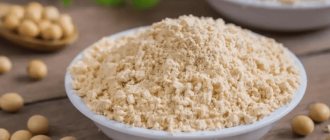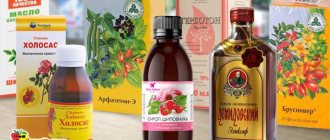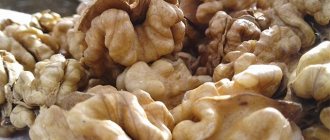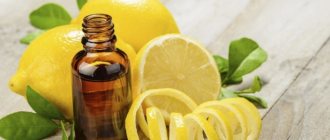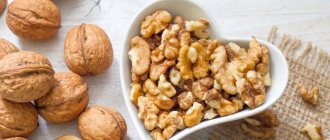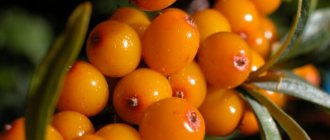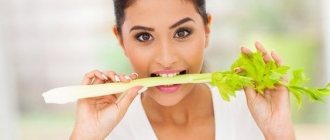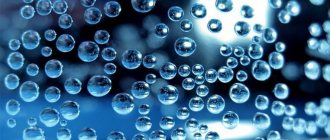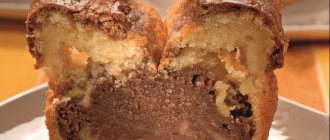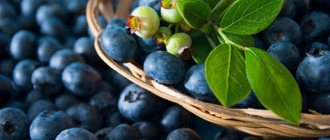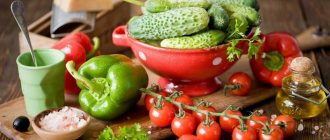Table of contents
- Nutritional benefits of pumpkin seeds
- Medicinal benefits of pumpkin seeds
- In conclusion, the benefits of pumpkin seeds
Pumpkin is native to South America. In our country, this plant is cultivated in the middle and southern zone.
Pumpkin seeds are filled with valuable nutrients. Eating pumpkin seeds can provide you with significant amounts of healthy fats, magnesium and zinc, which have been linked to improved heart health, prostate health and protection against certain types of cancer.
Moreover, these seeds are very tasty and rarely cause allergies.
Composition and calorie content
Pumpkin seeds are a high calorie product. There are about 559 kcal per 100 g of product.
Calories 559 Kcal
- Fat:
49 g - Proteins:
30.2 g - Carbohydrates:
10.7 g - Water:
5.23 g - Ash:
4.78 g - Fiber:
6 g
| Vitamins (per 100 g): | Quantity | %RDN |
| Gamma tocopherol (form of vitamin E) | 35.10 mg | 234% |
| Vitamin B3 (PP, nicotinic acid) | 4.99 mg | 24,9% |
| Vitamin B1 (thiamine) | 0.27 mg | 15,9% |
| Vitamin B5 (pantothenic acid) | 0.75 mg | 15,0% |
| Vitamin H (B7, biotin) | 4.57-10.0 mcg | 14,6% |
| Vitamin B9 (folic acid) | 58.0 mcg | 14,5% |
| Vitamin E (alpha tocopherol) | 2.18 mg | 14,5% |
| Vitamin B4 (choline) | 63.0 mg | 12,6% |
| Minerals (per 100 g): | Quantity | %RDN |
| Vanadium | 170.0 mcg | 425% |
| Manganese | 4540.0 mcg | 227% |
| Phosphorus | 1174-1233 mg | 150% |
| Copper | 1340-1500 mcg | 142% |
| Magnesium | 535-592 mg | 141% |
| Zinc | 7.4-20.2 mg | 115% |
| Silicon | 25.0 mg | 83% |
| Cobalt | 8.3 mcg | 83% |
| Chromium | 40.0 mcg | 80% |
| Iron | 8.82-15.0 mg | 79% |
| Bor | 55.0 mcg | 78,6% |
| Potassium | 807-814 mg | 33,4% |
| Rubidium | 26.0 mcg | 26% |
| Zirconium | 11.2 mcg | 24% |
| Sulfur | 146-160 mg | 15,3% |
| Molybdenum | 10.0 mcg | 14,3% |
| Selenium | 5.6-9.4 mcg | 11,5% |
| Iodine | 12.0-18.0 mcg | 10% |
Full chemical composition ➤
By eating 100 g of seeds, you can provide 115% of the body's daily need for zinc, 141% for magnesium, 80% for iron, and 33% for potassium, which is so necessary for the heart.
Other important connections:
- Phytosterols
- 523 mg (951% of the RDA). Of these: campesterol - 19 mg (34.5%), beta-sitosterol - 2.6 mg (6.5%), stigmasterol - 6.8 mg (19%), spinasterol - 112 mg (204%), delta -7-avenasterol - 72 mg (131%), delta-7-stigmasterol - 20 mg (36%), delta-7,25-stigmastadienol - 106 mg (192%), delta-7,22,25-stigmastatrienol - 151 mg (274%).
- Purines
— 37 mg (29% of RDA)
Botanical description
Pumpkin is an annual plant with a powerful root system. Its fruits can reach 50 kg in weight. Its flesh is orange and fibrous. Ripening occurs in late summer and autumn. Its seeds are numerous, have a rim along the edge and an oblong shape. Their length is usually 1-3 cm. The outside shell is woody, yellowish-white in color, the inside is gray-green, filmy.
Interesting! How does the composition of pumpkin and its beneficial properties differ from seeds in this article.
The benefits of pumpkin seeds
The benefits of pumpkin seeds for the human body are undeniable, although many people are accustomed to being careless about this healing product.
The beneficial properties of pumpkin seeds are varied, here are the main ones:
- Normalizing sleep and reducing the risk of depression.
Regular consumption of seeds improves the quality of night's rest, as they contain the amino acid L-tryptophan, which is very beneficial for humans. Once in the body, it is transformed into niacin and serotonin, which directly affect a person’s sleep.
- Prevention of hypertension.
Pumpkin seeds contain a huge amount of arginine. After entering the body, this amino acid is converted into nitric oxide, which is responsible for the expansion of arteries and blood vessels, improving blood flow through them.
- Reducing bad cholesterol levels.
Thanks to the phytosterols contained in pumpkin seeds, people who regularly include them in their diet prevent the development of atherosclerosis.
- Beauty and youth of the skin.
The seeds contain a large amount of vitamins A and E, which are responsible for the elasticity and smoothness of the skin, preventing the formation of wrinkles.
- Prevention of osteoporosis, reduction of inflammation in joint arthritis.
The benefits for bones from taking pumpkin seeds are due to the fact that they contain zinc.
- Prevention of prostate inflammation.
This property of pumpkin seeds is relevant for both older and younger men. Indeed, according to statistics, more than 30% of men over the age of 25 have prostatitis. In addition, the seeds contain omega-3 fatty acids and zinc, which prevent the development of benign prostate hyperplasia.
- From worms.
Since ancient times, the ability of pumpkin seeds to expel worms and other parasites from the body has been known. Therefore, in many countries they are used as a natural drug to get rid of pinworms.
- Protecting the heart from disease.
Pumpkin seeds contain a lot of magnesium, which protects the organ from rhythm disturbances and helps normalize the contractile function of the heart.
- Prevention of diabetes.
Despite the fact that pumpkin seeds are very high in calories, they contain a lot of protein, which is easily digestible and helps normalize blood sugar.
- Normalization of intestinal function.
This beneficial property of the seeds is ensured by the fact that they contain a lot of fiber, which stimulates peristalsis and works as a natural “brush” for the intestines. Chronic constipation is a direct indication for the regular inclusion of pumpkin seeds in the menu.
- Prevention of thyroid diseases.
This is possible due to the high content of zinc in the seeds, which is necessary for normal functioning. In order to protect this most important organ from diseases, it is enough to eat up to 140 grams of seeds per day.
- Regular consumption of pumpkin seeds helps improve dark vision and color perception. This occurs due to the vitamin A included in their composition, which takes part in the production of rhodopsin (visual pigment of the retina).
- Pumpkin oil, which the seeds of this fruit are rich in, contains many components that are beneficial for the immune system. Therefore, you should not forget about them in the autumn-winter period.
- It has been established that regular consumption of pumpkin seeds promotes the production of both female and male sex hormones, so they are equally beneficial for both sexes.
- You can improve your cognitive abilities by consuming pumpkin seeds, especially memory.
- It is worth taking the seeds with you on the road for people who suffer from seasickness or get carsick. The fact is that eating seeds helps reduce the severity of nausea. Therefore, they are recommended to be consumed in moderation by pregnant women.
- Prevention of male infertility. So, the seeds contain a lot of phosphorus, which is what sperm need to grow full-fledged tails. Thanks to these tails, sperm become more mobile, which increases the chance of conceiving a child.
- Pumpkin seeds can be a valuable source of protein for people who are keen on a raw food diet, vegetarianism or those who adhere to fasting.
- It is an excellent source of iron, zinc and many other minerals.
It is worth remembering that in order to get the maximum benefit from pumpkin seeds, they must be consumed fresh. After heat treatment (after roasting), most of the vitamins and microelements are destroyed. It is better to peel the seeds right before use, and not in advance.
Pumpkin seeds for men
Pumpkin seeds are very useful for men, as they help fight diseases of the male reproductive system. It has been established that men require zinc for the normal functioning of the prostate gland. As a rule, the amount of mineral that men get from food is not enough. This leads to the development of inflammatory processes in the prostate. The need for zinc is especially acute in men after 50 years of age. Therefore, to protect yourself from prostate adenoma and prostatitis, it is enough to eat 50 pumpkin seed kernels a day.
In addition, zinc is part of the testosterone molecule, the main male hormone. The microelements contained in the seeds help increase sperm motility, which is an excellent prevention of male infertility.
It is known that men are prone to alopecia at an early age. Regular consumption of pumpkin seeds will strengthen the hair roots and prevent premature hair loss. In addition, the zinc contained in the seeds allows you to fight dandruff, which is a fungal disease, and not just a cosmetic defect.
It has been proven that men develop atherosclerosis earlier than women, which leads to heart attacks and strokes, and consuming pumpkin seeds will help stop this process. The amino acids included in their composition strengthen the vascular wall, iron increases hemoglobin, arginine dilates blood vessels, and phytosterols help reduce cholesterol levels in the blood.
Pumpkin seeds for women
Pumpkin seeds for women have undoubted benefits, which include maintaining not only beauty, but also health.
It has been established that women suffer from osteoporosis much more often than men. The processes of leaching calcium from bones are especially active after the age of 45. The minerals contained in the seeds will allow this process to be stopped. The fact is that in the seed, useful substances are present in such combinations that help each other to be mutually absorbed.
Another common female problem is anemia. Pumpkin seeds are an excellent source of iron. By eating 100 g of seeds per day, you can meet your daily requirement for this microelement almost 100%.
In addition, pumpkin seeds strengthen hair and nails, fight wrinkles, provide elasticity and smoothness of the skin, promote epidermal renewal, and relieve microinflammation. Fatty acids moisturize the skin from the inside, prevent hair loss and eliminate the causes of dandruff.
It is useful to consume pumpkin seeds for women during menopause, as the phytoestrogens it contains normalize mood, fight depression and improve the quality of night sleep. Tryptophan will relieve headaches and joint pain.
It is beneficial to consume pumpkin seeds in small quantities during pregnancy. A handful of seeds will make it possible to reduce the manifestations of toxicosis, alleviate odor intolerance, and reduce nausea. In addition, the seeds are an excellent means of preventing anemia and constipation, which often plague women carrying a child.
Beneficial features
Studies conducted by many scientists prove that substances contained in pumpkin seeds help fight cancer [6][7]. In addition, they can boost immunity and help the body fight bad cholesterol. Regular consumption of pumpkin seeds is also recommended for people who suffer from arthritis. They help fight this disease, strengthen blood vessels and, unlike pharmacological drugs, have no side effects. The zinc contained in the seeds helps improve the condition of bones, and, therefore, is an excellent prevention of diseases of the musculoskeletal system [8].
They are also able to maintain normal blood sugar levels and help reduce blood pressure. When consumed regularly, they help strengthen blood vessels and normalize the functioning of the gastrointestinal tract. They also act as an antidepressant, as they strengthen the nervous system and help us fight stress.
Few people know, but pumpkin seeds are good as an aid for seasickness. They help a lot if you get motion sickness during sea travel or in land transport.
Previously, pumpkin seeds were advised to be consumed by pregnant women in the early stages, although this remedy has now been forgotten. Nevertheless, it has not lost its relevance: a very small amount of seeds per day helps fight toxicosis and morning sickness.
Pumpkin seeds also work well as an immediate relief from constipation. It is enough to include a very small amount in your diet for the positive effect to become noticeable.
Pumpkin seeds can help the body cope with such a serious problem as the concentration of heavy metals in the body. Studies have shown that they help remove lead and cadmium.
Pumpkin seeds are used as a wound healing agent for burns: a paste of them should be applied to the wound as a compress.
Harm of pumpkin seeds
The harm of pumpkin seeds to the body can be noticed if they are consumed excessively:
- The fact is that the product is very high in calories and if you eat more than 140 g of seeds per day, this can cause excess weight gain.
- Eating salted and roasted seeds can provoke the development of congestive processes in the joints and limit their mobility. In addition, the omega-3 contained in the seeds is oxidized during frying, and the product becomes toxic.
- You can also damage your tooth enamel if you peel the seeds with your teeth instead of your hands.
Naturally, it is worth remembering the contraindications to consuming pumpkin seeds.
Storage and use
Despite the fact that roasted pumpkin seeds are much tastier than dried ones, the latter have more benefits, so it is recommended to use dried ones. The fact is that when heated, seeds lose up to 50% of nutrients and vitamins, which means they become half as useful. The easiest way is to prepare dried seeds yourself, since they are mostly sold fried. To do this, you need to collect pumpkin seeds and then dry them thoroughly in a warm oven or in the fresh air, placing them in a thin layer on a baking sheet. Once the seeds are dry, they can be stored in a glass container, wooden or cardboard boxes, or fabric bags.
Content:
- Storage and use
- Chemical composition
- Beneficial features
- Use in cooking
- Zinc and phosphorus in pumpkin seeds
- Use in folk medicine
- Pumpkin seed oil
- Contraindications for use
Treatment with pumpkin seeds, recipes
Treatment with pumpkin seeds can be reduced to their daily intake in the recommended volumes. Regular inclusion of pumpkin seeds in food is the prevention of many diseases. Even traditional medicine has recognized the health benefits of pumpkin seeds and their medicinal properties. So, in the pharmacy you can find the drug Tykveol, which is based on pumpkin seed oil. It is recommended to be used for infectious diseases, for the prevention of oncology and atherosclerosis. There are also many folk recipes based on pumpkin seeds:
- The cardiovascular system.
Cholesterol poses a serious danger to humans. Pumpkin seeds contain 951% of the daily minimum of various phytosterols, which block the absorption of cholesterol from food, control blood pressure and thin the blood. And fiber and omega-6 can reduce the risk of arrhythmia and thrombosis, which is the most common cause of death in the world.
In order to strengthen your heart and vascular system, it is enough to regularly drink a decoction of pumpkin seeds. The recipe is very simple: take three tablespoons of pumpkin seeds and pour 300 ml of cold water. Place the resulting mixture on the fire, bring to a boil and simmer for 5 minutes. The decoction should be drunk a quarter glass before bed.
A decoction of pumpkin seeds will help prevent heart-related diseases, and also strengthens blood vessels and normalizes sleep.
- Treatment of wounds and burns.
Grind the seeds in a coffee grinder or blender, wrap in thick gauze and scald with boiling water. After cooling, the compress can be applied to sore spots. This paste will not only relieve pain, but will speed up tissue regeneration processes.
- To normalize intestinal function.
Pumpkin seeds have a laxative effect and help remove all toxins from our body. They are considered an excellent remedy that helps cope with constipation, bloating and other intestinal problems.
Recipe.
Peel 100 grams of raw seeds and grind them in a blender or coffee grinder. The powder should be taken every morning on an empty stomach, 2 tablespoons and washed down with warm milk. After an hour, take a laxative. The course of such treatment is 5 days. It should be noted that pumpkin oil is also useful, which in itself is useful for the prevention of gastritis and stomach ulcers.
Pumpkin seeds contain zinc, per 100 grams accounting for half the daily requirement. Many people know that zinc is an active antibacterial agent against viruses and bacteria. It’s enough just to eat pumpkin seeds and the supply of zinc in the body will increase significantly.
Pumpkin seeds contain a high amount of zinc, which helps prevent prostatitis in men. In addition, many traditional healers use pumpkin seed extract and oil to prevent prostate cancer. Of course, the problem with the prostate will not be completely solved, but the condition will improve significantly. If a man experiences problems with the prostate, then a frequent urge to urinate, which comes with pain in the scrotum, is a sure companion. It is these sensations that pumpkin infusion will help you get rid of.
- Recipe 1.
Seeds (0.5 kg) are ground into flour and 200 g of honey (not candied) are added to them. The mixture is placed in the refrigerator to thicken, after which it is rolled into small balls the size of hazelnuts. Such balls need to be dissolved on an empty stomach (1-3 balls). The course of treatment is a month.
You can grind the seeds into flour, but they should be thoroughly dried first. The powder should be taken twice a day before meals in the amount of two tablespoons. The mixture is washed down with a glass of honey water. It is recommended to grind the seeds together with the peel, and sift them before use.
For inflammatory processes of the bladder and kidneys, it is necessary to consume a mixture of hemp and pumpkin seeds in equal proportions daily. Volume – 1 teaspoon, number of doses – 2 times a day with meals. Pumpkin milk is good for cystitis. The peeled seeds are mixed with sugar and water (proportions 50 g: 20 g: 80 ml). Take a teaspoon three times a day before meals.
100 grams of pumpkin seeds contain the daily dosage of tryptophan. This amino acid is responsible for the synthesis of serotonin in our body. Many people know that serotonin is a source of good mood. Take a small amount of seeds during periods of low mood.
Pumpkin seeds contain a huge amount of microelements that have a positive effect on our body. For example, zinc and selenium fight cancer cells, and vitamin E slows down their aging.
Consume pumpkin seeds to replenish your body with essential microelements. Remember that one product will not cope with the disease; you need to monitor your diet and sleep.
Video: nutritious breakfast smoothie made from pumpkin seeds:
Keep these tips and tricks in mind to get the most out of your pumpkin seeds:
- Eat the seeds raw. A fried product loses half of its positive properties;
- Do not use old and spoiled seeds, as they go rancid and can be harmful to health, taste them;
- Peel the seeds before use or buy them peeled immediately;
- 50 pumpkin seeds per day helps improve skin and hair;
- Eat seeds with the skin on if you want to add fiber to your diet. Clean them if you are not sure that your digestive tract can digest them. Side symptoms include abdominal pain and diarrhea.
Pumpkin seeds help add variety to your diet. With their help, you get not only healthy, but also delicious dishes.
Zinc and phosphorus in pumpkin seeds
The substances contained in the seeds, in particular zinc and phosphorus, are beneficial for brain function, and zinc is also an indispensable and extremely important element for the health of the male body. Research has shown that zinc can act as an effective preventative against prostate inflammation, so pumpkin seeds will be extremely beneficial for any man [9]. They are especially suitable for those men who sit a lot at work, especially if it is associated with intellectual stress. In the latter case, consuming pumpkin seeds simultaneously strengthens the nervous system, improves mental abilities, helps fight stress, and at the same time supports men's health, reducing the risk of prostate problems.
Additionally, pumpkin seeds can be an excellent source of zinc for those who need it. This is an excellent alternative to vitamins and various supplements, as they are easier to digest and provide much more benefits. Zinc deficiency usually manifests itself in poor skin and hair condition, as well as disruption of the gastrointestinal tract [10]. So, if you need to normalize the level of zinc in the body, the easiest way is to consume a small amount of dried pumpkin seeds every day. Just a month will be enough for you to notice the effect and feel much better. Zinc and phosphorus contained in the seeds regulate the reproductive system and help our vision, and also supports the musculoskeletal system.
Pumpkin seeds for worms
Pumpkin seeds for worms are prescribed to their patients by parasitologists around the world. They contain a substance such as cucurbitin. It has a paralytic effect on the nervous system of pinworms and causes their death.
The advantage of seeds over anthelmintic drugs is that they do not have a toxic effect on the human body, do not irritate the mucous membranes of the digestive system and have no age restrictions.
How to take pumpkin seeds for worms?
You need to peel the seeds and grind them with water. An adult will need about 300 g of seed per dose, children over 10 years old - 150 g, children from 5 to 7 years old - 100 g. If the child is under 4 years old, then 50 g of seed will be enough for him. It is important that the thin green film that is present on the seed does not go to waste along with the peel.
To get rid of worms, the seeds should be consumed raw. The required amount of seeds is cleaned, poured into a bowl, where they are thoroughly ground. During the grinding process, you need to add water, 10 drops at a time. 300g of seeds may require about 4 tablespoons of water. Eat the resulting gruel in the morning, on an empty stomach. You need to eat the entire portion within an hour. After another three hours, you need to drink a laxative and after half an hour do a cleansing enema. This method allows you to quickly and effectively get rid of worms without resorting to medications.
Benefits and harms for children, pregnant and lactating women
The product is of great benefit to pregnant women; if there are no contraindications, you can consume no more than 100 g per day. At the same time, you need to monitor your well-being.
Pumpkin seeds strengthen the immune system well, and this is especially important during the period of bearing a child. The product relieves early nausea and heartburn, normalizes intestinal function and reduces the risk of developing infections.
The main benefit of the product for children is its ability to remove helminths (if for some reason you cannot take medications for them). The amino acid cucurbitin it contains is absolutely harmless to the child’s body. It is enough to give your child 5-10 seeds a day to improve the functioning of the gastrointestinal tract.
Breastfeeding mothers need sufficient amounts of vitamins and minerals to enter their bodies. This promotes normal growth and development of the baby. Therefore, you can eat some pumpkin seeds while breastfeeding. At the same time, you need to monitor your well-being, behavior and stool of the child. While breastfeeding, you should not get carried away with the product.
Pumpkin seeds with honey
Pumpkin seeds with honey are not just a sweet treat, but a real medicine for getting rid of many diseases. The mixture helps to treat prostatitis and prostate adenoma, to normalize sleep, and to relieve emotional stress.
You can pour honey over both whole and powdered peeled seeds. You need to store this healthy and tasty mush in the refrigerator in a glass jar with a tight-fitting lid.
Take a tablespoon of pumpkin seeds with honey several times a day before meals, 20 minutes before meals. But it is worth remembering that you should not eat more than 3 tablespoons of seeds with honey per day, since the calorie content of such a mixture is very high.
Use in cooking
Pumpkin seeds are great for adding to some dishes to add flavor and make them healthier. They go best with vegetables, so you can add dried seeds to a stew or stir-fry of vegetables, the main thing is to do this after cooking. You can also add them to fresh vegetable salads to add a zesty taste and make your diet healthier and richer in minerals.
In cooking, pumpkin seeds are often used to make a spicy sauce. To do this, they are crushed, garlic and herbs are added to them, the resulting sauce is seasoned with vegetable oil of your choice and a few drops of lemon juice. The result is a tasty, original and very healthy sauce that goes well with a huge range of dishes.
If desired, you can even add pumpkin seeds to baked goods, for example, combine them with walnuts or use them separately. Pumpkin seeds taste good in side dishes. They are added to porridges at the end of cooking, as well as to various soups, preferably vegetable or cold.
How to dry pumpkin seeds?
Pumpkin seeds need to be properly dried so that they retain maximum benefits and do not lose their taste. To do this, they should be carefully removed from the pulp of the fruit, rotten specimens should be selected and washed under running water. It is convenient to use a colander for this purpose. Then the seeds are laid out on a towel and dried on both sides, this allows you to remove excess moisture from them.
If you plan to roast the seeds, this will replace the drying process. They are simply placed in a frying pan and fried until golden brown. For complete cooking, 15 minutes will be enough.
In an air fryer, the seeds are dried at a temperature of 60 °C for half an hour. The electric dryer is turned on at a temperature of 80 °C, drying time is 40 minutes. The oven is heated to 80 °C and the seeds are kept in it for 20 minutes. Wherever the seeds are dried, they must be stirred periodically.
If you have time, you can dry the seeds outdoors in a warm room with low humidity. As a rule, one week is enough to completely dry the seeds. In this way, it will be possible to obtain the most useful product that will retain all the vitamins and microelements.
For women
The product is no less useful for women’s health, namely:
- prevents the appearance of polyps in the uterus;
- alleviates the condition during menopause;
- helps maintain good appearance and attractiveness;
- is a preventative against infertility;
- eliminates heartburn and toxicosis in early pregnancy.
Pumpkin seeds are used not only in medicine, but also in cosmetology. This product gets rid of such scourges as oily, dry and brittle hair, dandruff, acne, wrinkles, dull skin. Pumpkin seeds are useful for baldness, as the zinc they contain stimulates hair growth.
Contraindications to the use of pumpkin seeds
Contraindications to consuming pumpkin seeds are as follows:
- Diseases of the digestive system in the acute stage. Gastroenterologists prohibit patients from eating any roughage during treatment of gastritis, colitis or gastric and duodenal ulcers. Gastritis with high acidity, intestinal obstruction - all these are contraindications for consuming pumpkin seeds.
- Individual intolerance to pumpkin pulp and allergic reactions to its consumption will also occur when the seeds of this fruit are included in food. Therefore, in this case, it is better to refuse to take them.
- Excess weight is a contraindication to consuming excessive amounts of seeds, as they are high in calories.
Seed-based preparations, seed oil
Today, you can purchase several medications based on pumpkin seed extract at the pharmacy. These include “Pumpkin Seed Oil”. It has choleretic, antiulcer, metabolic, anti-inflammatory and antiseptic effects. Its contraindications include only individual intolerance.
The most popular of the drugs is Tycveolum . It is available in oval-shaped soft gelatin capsules, in the form of suppositories and liquid oil. This is a complex remedy that has the following effects:
- anti-inflammatory;
- antioxidant;
- wound healing;
- choleretic.
Tykveol is used to treat skin diseases, wounds and burns, liver and stomach pathologies, male and female diseases. The drug improves immunity and prevents the development of inflammation. Indications for taking the medicine orally are:
- gastritis;
- colitis;
- hepatitis;
- atherosclerosis.
It is used both internally and in the form of masks and lotions. With its help you can make your skin elastic and silky.
The drug is also indicated for pregnant women. It relieves hemorrhoids, nausea, thrush and other inflammations in the vagina. Pumpkin oil is used to lubricate the tongue in the mouth of children with stomatitis. It is prescribed to teenagers for general strengthening of the body, increasing performance and developing intelligence.
This remedy has no obvious contraindications. It should not be used only if you are hypersensitive to pumpkin oil, or after the expiration date. If you exceed the dose, problems with the gastrointestinal tract may occur.
Answers to popular questions:
- How many pumpkin seeds should you eat per day?
It will be enough for an adult to eat 60-70 pumpkin seeds per day.
- Can I eat pumpkin seeds with the skin on?
Pumpkin seed shells are safe to eat and contain more fiber than shelled ones. However, people with digestive problems are advised to avoid consuming whole seeds, as their high fiber content can cause symptoms such as pain and diarrhea.
- Can I have pumpkin seeds while breastfeeding?
It is possible, but in moderation. Mothers of children with allergies should be especially careful. After taking the seeds for the first time, you should carefully monitor the baby’s reaction to a new product on the nursing woman’s menu.
- Is it possible to have pumpkin seeds for pancreatitis, diabetes and gastritis?
For pancreatitis and gastritis, pumpkin seeds are prohibited, but for diabetes mellitus, they can be included in the daily menu.
Indications for use
It is recommended to use the product for people who have the following diseases and health problems:
- BPH;
- inflammation of the prostate gland;
- avitaminosis;
- osteoporosis;
- helminthiasis;
- nervous disorders;
- insomnia;
- metabolic disease;;
- heartburn;
- diabetes;
- acute and chronic gastritis;
- hypertension;
- constipation, diarrhea;
- burns;
- cystitis;
- kidney and liver diseases.
The following four categories of people should include pumpkin seeds in their diet:
- Children and teenagers.
- Pregnant women.
- Elderly men and women.
- Athletes.
Pumpkin seeds are shown while traveling in transport, be it an airplane or a car. This product helps relieve nausea from motion sickness. To do this, you need to break the seeds with your fingers. At the same time, motor skills are trained and attention is switched.
Pumpkin seeds are useful for the prevention of many diseases.
Parasite Remedy
One of the most famous properties of pumpkin seeds is the fight against worms. The easiest way is to eat this product regularly. It is very useful to give seeds to children, because... This problem occurs to them more often than to adults. For them, this is not only a gentle medicine, but also a wonderful delicacy. You can make homemade sweets based on crushed seeds and honey.
Obviously, the benefits of pumpkin seeds far outweigh the harm they can cause to health. With moderate consumption of seeds, they will not cause harm to the body. You need to know all the beneficial properties and contraindications of this product and use this information wisely. Eat this wonderful product and be healthy!
Composition of pumpkin seeds
To understand the benefits of pumpkin seeds, you need to know what substances are inside.
Despite their rich composition, they are half made up of fat (about 50 grams of fat per 100 grams of product). It contains a lot of protein (about 30 grams). The rest is occupied by easily digestible carbohydrates, water, ash substances, and dietary fiber in approximately equal proportions. This product is a storehouse of minerals and vitamins.
Just 100 grams contains almost the daily requirement of B vitamins, as well as PP. A large amount of vitamins A, E, K, C are also present in the composition.
And in terms of the content of micro- and macroelements, pumpkin seeds are not inferior to almost any other product. 100 gr. pumpkin seeds contain 2.5 daily norms of manganese, one and a half daily norms of zinc, potassium, magnesium, phosphorus, as well as calcium, selenium, iron, etc. Just 150 grams of peeled seeds - and the daily dose of minerals is provided. Contains amino acids (about 20) that support the health of the body as a whole.
Pumpkin as a container of useful microelements
Pumpkin seeds are rich in nutrients, including protein, fiber, omega-3 fats, magnesium, zinc, iron, copper, B vitamins and antioxidants . One serving of shelled pumpkin seeds contains about 85 seeds and contains 18 percent of the recommended daily intake of magnesium and 19 percent of zinc.
The seeds also contain a lot of iron, which is an important nutrient because the body needs it to produce hemoglobin, a protein that is responsible for circulating oxygen in the body. Lack of iron can lead to fatigue, anemia and problems with the immune system. These problems can be avoided if you get enough iron in your diet. 30 grams of seeds provide 11 percent of the recommended daily intake of this micronutrient.
They also contain a large amount of fiber. Men are recommended to consume about 38 grams of this substance per day, and women - about 25 grams . Unfortunately, statistics show that Russians eat only half the recommended amount. More fiber improves colon health, strengthens the immune system, and helps prevent diabetes and cardiovascular disease. If you're looking to increase your fiber intake, consider pumpkin seeds. Just 30 grams of these seeds will provide 20 percent of the recommended daily value.
For gynecological diseases and more
The benefits of pumpkin seeds for women are no less evident than for men. They treat polyps in the genital organs (vagina, uterus) and digestive organs (stomach). For the treatment of polyps, pumpkin seeds are used together with egg yolk and white.
A solution of eggs and pumpkin seeds is prepared at the rate of 1 egg - 1 teaspoon of meal, 1 tablespoon of vegetable oil. The components are mixed, kept in a water bath for 20 minutes and stored in the refrigerator. Take 1 teaspoon in the morning on an empty stomach. The treatment regimen is 5 days on and 5 days off. Repeat until cured.
First of all, polyps in the stomach and intestines begin to shrink. Within a month, they pass through the intestines along with feces and mucus. Later, the remedy causes the separation and release of polyps in the uterine cavity. In addition to improving blood flow and immunity, preventing age-related complications (osteoporosis, menopause), pumpkin seeds help maintain an attractive appearance and youth.
Pumpkin meal is used for cosmetic purposes. It is mixed with egg or sour milk and applied to the skin of the hands and face. Vitamins and oils nourish the skin, make it blooming and fresh.
Husk and seeds
Pumpkin seed husks are also rich in all the substances found in the seed itself. But it is absolutely not digestible and has a neutral taste. Therefore, eating it is a pointless exercise. But the preparation of infusions and decoctions based on the husk is possible and even welcomed by traditional healers.
There is a method that enhances the beneficial effects of seeds. All you need to do is let them sprout. To do this, you need to place the seeds on a plate and add water so that it is only slightly higher than the level of the product itself. Leave it like this in a dark place for about 48 hours, changing the water regularly. You can eat these sprouts just like that or use them as an additional ingredient in salads.
To fry or not?
Despite the apparent harm, roasted seeds have a number of beneficial properties. They are good for restoring the child’s body after various infectious diseases, as well as during pregnancy. They should be consumed in moderation. It is the fried seeds that better help women in this position get rid of the unpleasant manifestations of toxicosis (nausea and heartburn). Due to dietary fiber, such a fried product normalizes digestion well.
Although scientists clearly say that when seeds are heated to 90℃, there are half as many nutrients, fat oxidation occurs and a large number of radicals are released, which is already dangerous for humans. To get the benefits of pumpkin seeds, it is better to eat them raw, only slightly drying them in the oven at 50-70℃ until they have a pleasant nutty taste. Frying them, much less salting them, is not at all necessary.
History and appearance of pumpkin seeds
Latin America is considered the birthplace of this melon family vegetable. The Indians who lived in what is now Mexico used pumpkin pulp and seeds as a medicinal and dietary remedy. Then it came to Europe, and from there it spread throughout the world. Europeans fell in love with pumpkin pulp, but for a long time ignored its seeds. Only in the last 100 years have they begun to gain popularity, being eaten even more than pumpkin itself.
Pumpkin seeds are flat, about 1 cm in length, the skin is white. The seed itself is green. Their benefits are appreciated all over the world: they are one of the most useful plant seeds. They are consumed as a delicacy, used in cooking, and used as a folk medicine.
